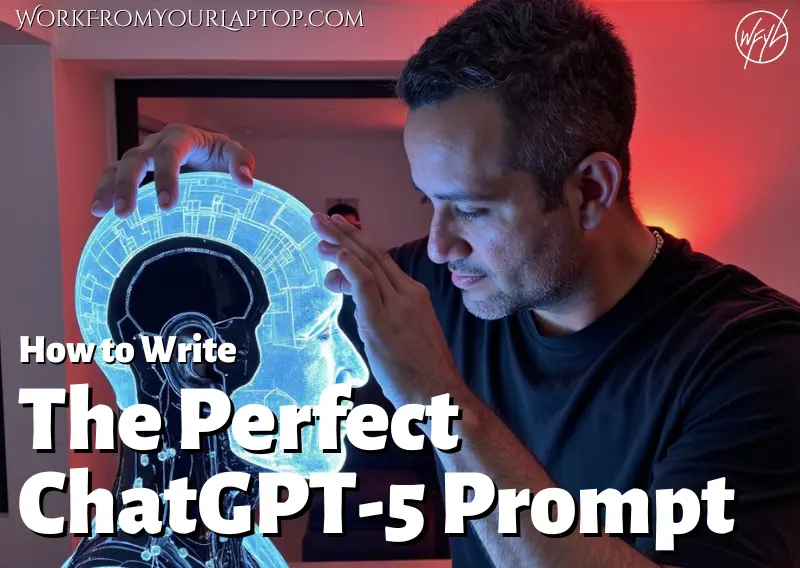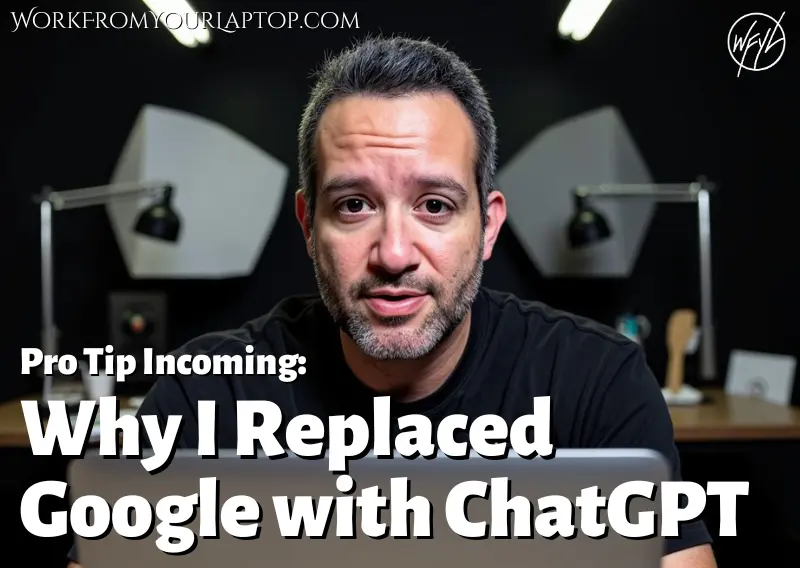Last updated on August 21, 2025 · In-depth guide, 5–7 min read

AI is changing how people find your content, and if you’re still optimizing just for Google, you’re already behind. It’s time to not only write for SEO, but for GEO too.
TL;DR: What is Generative Engine Optimization (GEO)?
Generative Engine Optimization (GEO) is how you structure your content to be easily understood, cited, and summarized by AI tools like ChatGPT, Perplexity, and Google’s Search Generative Experience.
- GEO is SEO for AI tools like ChatGPT, Perplexity, and Google SGE. If you want your content cited by AI, you have to write for AI comprehension.
- Use natural language and clear structure. AI tools prefer content that’s easy to break into chunks and summarize.
- Topical authority is your secret weapon. Build strong internal linking and cover related topics deeply to be considered a source of truth.
- Structured data is no longer optional. Schema markup helps AI understand your content and quote it correctly.
- Don’t ditch SEO, just evolve it. GEO builds on SEO principles and expands them to work with how large language models retrieve answers.
What’s In This Article? Quick Jumps
- What Is GEO and Why Should You Care?
- How Is GEO Different from SEO?
- The Rise of AI-Driven Search Tools
- How to Make Your Content GEO-Optimized
- Why Context, Authority, and Structure Now Matter More Than Ever
- The Tools I Use to Stay Ahead of AI Search
- Final Thoughts
- Frequently Asked Questions
What Is Generative Engine Optimization, and Why Should You Care?
GEO (Generative Engine Optimization) is the process of optimizing your content to rank in AI-driven search results like those found in ChatGPT, Perplexity, and Google’s Search Generative Experience (SGE).
As bloggers we have to constantly adapt. The truth of our reality is that It’s no longer just about blue links on Google, it’s about becoming the source that AI tools pull from and recommend.
And if your blog content isn’t structured with that in mind, you’re missing a huge opportunity to future-proof your traffic.
How Is GEO Different from SEO?
Let’s clear this up right now: GEO doesn’t replace SEO, it builds on it.
Where traditional SEO focuses on getting your page to rank in Google’s ten blue links, GEO is about making your content the kind AI tools like ChatGPT and Perplexity want to quote, summarize, or link to directly.
GEO takes into account how LLMs (Large Language Models) are trained, how they ingest content, and what they need in order to trust your site as a credible source. That means things like:
- Semantic clarity
- Concise and scannable structure
- Reinforcement of your authority across a niche
It’s SEO with a new lens. If you’re not thinking about how AI models see and summarize your site, you run the risk of becoming invisible to a growing segment of online searchers. Personally, I think it’s important enough that I add an actual button to trigger ChatGPT to summarize my article. Try it above and see what I mean.
The Rise of AI-Driven Search Tools
We’re already seeing a major shift. Tools like:
- Perplexity.ai – citing sources in real-time, similar to a research assistant
- Google SGE – pulling summaries and displaying answers above traditional search results
- ChatGPT with Browsing – scanning live content and citing pages for up-to-date info
These platforms don’t care about keyword stuffing or backlink count. They care about clarity, expertise, and context. If you nail those three things, you start becoming the answer — not just a search result.
Related post: Check out my article “Why I Replaced Google With ChatGPT” and see why I’m done sifting through links when I need answers!
How to Make Your Content GEO‑Optimized
Alright, here’s where we shift gears from theory to application. Want your blog posts to rank in AI answers? Here’s what works:
1. Structure like you’re writing a study guide
Use clear H2 and H3 headers, short paragraphs, and bold takeaways. AI tools scan top-down, so content that’s easy to chunk and summarize wins. Check out my article “Tips for Writing Engaging Blog Posts” for my personal tips on not just grabbing your reader’s attention, but AI as well.
2. Start with topical authority
Cover your niche thoroughly. For example, if you’re writing about affiliate marketing, don’t just create one overview. Write about tools, strategies, platforms, use cases, trends, etc. This tells AI you’re not just relevant, but you’re a reliable authority.
3. Include actual answers, not just keywords
Instead of padding content with fluff, get to the point. Answer questions clearly and early. Think featured snippet style. Always be thinking of which sections in your post AI could potentially pull from and how these would look and fit in the SERPS.
4. Schema, schema, schema
Use FAQ schema, Article schema, Product schema, anything that helps AI understand the type and purpose of your content. I include custom JSON-LD in every post here on Work From Your Laptop and it’s made a huge difference in my visibility.
5. Link smartly
AI tools use context from your site structure to determine expertise. Internal links between related topics help reinforce your authority and improve crawlability. This applies to AI crawlers just as much as search engines.
Why Context, Authority, and Structure Matter More Than Ever
The shift from keyword-first to context-first is already here.
You’re no longer competing just on who can rank for “best affiliate program.” You’re competing on who explains it the best, most clearly, and most consistently across multiple posts.
Google is already using generative summaries in their SERPs. Perplexity is rewarding domain expertise over content farms. ChatGPT cites sources that it can easily quote and digest.
This is why GEO matters. It rewards clarity, consistency, and usefulness, not just clever SEO tricks.
The Tools I Use to Stay Ahead of AI Search
Want to set your site up for GEO success? Here’s what’s in my toolkit:
- ChatGPT-4o – for real-time content audits, structuring, and simplifying language. I use this literally every day, for hours each day.
- Google Search Console – to identify content gaps and fine tune existing posts. I use this hand in hand with GPT all the time.
- SurferSEO – solid tool for balancing traditional SEO with new optimization styles. Check out my full SurferSEO review here.
- Schema Markup Validator – to test the code I embed in each post. You simply enter the url of your article and it double checks that your code is correct. Try it here.
- WordPress with custom HTML blocks – for inserting my JSON-LD schema manually. The block editor is built for this stuff, and the Custom HTML block is a lifesaver.
I’m not affiliated with these tools, they’re just what I use personally. And if you want help setting this all up, hit me up inside Wealthy Affiliate, where I coach people through this entire process step by step.
Ready to stop chasing advice and build something that works?
I owe all my success to this training. Trust me, it’s worth taking a look.
🎯 Click here to check out my full review.
Final Thoughts
GEO is already shaping how people discover your content online. If you’re still optimizing like it’s 2015, you’re going to get left behind. Write for humans first, structure for AI second, and stay consistent with your topical coverage.
What Do You Think? Have you started optimizing for AI-driven search yet? Are you seeing more traffic from Perplexity, ChatGPT, or SGE?
Drop your thoughts in the comments or hit me up directly. And if you want more walk-throughs like this, don’t forget to subscribe to WFYL on YouTube. I break topics like this down with easy to follow screen shares and tutorials with you looking right over my shoulder as I work.
Frequently Asked Questions
What is Generative Engine Optimization?
Generative Engine Optimization (GEO) is the process of optimizing your content so it’s easily understood and cited by AI tools like ChatGPT, Perplexity, and Google SGE. It builds on SEO but focuses on structure, clarity, and authority for AI models.
How is GEO different from SEO?
SEO focuses on traditional search engine ranking, while GEO is about making your content the kind that AI pulls from directly in summaries and chat responses. Both work together, but GEO is more tailored for the way LLMs process and reference data.
Do I still need backlinks for GEO to work?
Backlinks still help for SEO, but they matter less in GEO. What matters more is whether your content is clear, consistent, and part of a broader network of helpful, related posts. AI tools care about structure and authority more than raw link juice.
Want More AI Related Content Like This?
- AI Freedom Launchpad Review
- PhantomBuster Review: Worth the Hype for Social Media Automation?
- How to Write the Perfect ChatGPT-5 Prompt
- How I Use ChatGPT to Get More Traffic From My Existing Blog Posts
- Why I Replaced Google With ChatGPT (And You Should Too)
- Top 10 AI Content Creation Tools in 2025: Honest Reviews from Real Users






This is a very interesting article. I have been trying to use tag words to get indexed or ranked on google but it does not seem to be working as I still am not indexed or ranked since April. Would changing my writting style possibly help with that because I really don’t use the headers? I just Write. So if I understand you I need to be using headers and key words in those headers for AI and the crawlers to hit on to help get me indexed or recognized?
It’s not just headers, each of the 5 steps under “How to Make Your Content GEO-Optimized” would be the steps I would take. Headers alone don’t get you ranked, it’s the whole package detailed in those 5 points. Thanks for the comment!..
When it comes to implementing GEO alongside traditional SEO strategies, what would you say is the first priority for bloggers who are just starting to adapt? Is it better to focus on topical authority and internal linking first, or should we begin by restructuring existing posts with AI readability and schema in mind?
Also, how soon have you noticed results from GEO-based changes—does it impact traffic noticeably through tools like Perplexity or SGE, or is it more of a long-game play?
The answer to your first question: Yes. It’s not one or the other. Optimize everything and give yourself the best possible chance of ranking. Good practices lead to good ranking. Period. Put the tiny extra work in and it reaps benefits for a long time to come. Thanks for the comment!